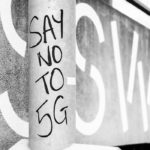 Conspiracy theories have sadly been a feature of the COVID-19 pandemic, and recent times have seen various protests launched that have been fuelled by a range of unfounded conspiracies, particularly around vaccines.
Conspiracy theories have sadly been a feature of the COVID-19 pandemic, and recent times have seen various protests launched that have been fuelled by a range of unfounded conspiracies, particularly around vaccines.
It’s perhaps no surprise, therefore, that a recent survey from the Annenberg Public Policy Center has revealed that belief in conspiracy theories is hampering our attempts to halt the spread of the virus. The study found that these conspiracy theories persisted throughout the pandemic, and were strongly linked to a reluctance to wear masks or accept any vaccines that ultimately become available.
“Belief in pandemic conspiracy theories appears to be an obstacle to minimizing the spread of COVID-19,” the researchers say. “To control the pandemic we need high rates of mask-wearing, physical distancing, and hand-washing now – and of vaccination when a safe and effective vaccine is available.”
Skewed beliefs
The two surveys, conducted in March and July, found a number of persistent conspiracies, including that the Chinese government created the virus, that the CDC was exaggerating the danger it posed to damage the Trump presidency, and that the pharma industry had created the virus to boost sales.
Belief in these conspiracies was heavily linked to the consumption of conservative media, with social media usage also a common factor in the misinformed views about the virus.
“Conspiracy theories are difficult to displace because they provide explanations for events that are not fully understood, such as the current pandemic, play on people’s distrust of government and other powerful actors, and involve accusations that cannot be easily fact-checked,” the researchers explain.
Perhaps unsurprisingly, belief in conspiracy theories was linked to lower perceived threat from the pandemic, which subsequently led to a reduced chance of taking preventative measures, either in terms of mask-wearing and social distancing, or having a vaccine when it becomes available. Sadly, the anti-vaxx intentions of conspiracy theorists appear to be widening and had nearly doubled between March and July, with just 22% of the conspiracy theorists saying they would get vaccinated in July.
Unsurprisingly, these people also didn’t have a great deal of faith in the safety of the measles, mumps, and rubella vaccine. Mask wearing was also considerably lower among this group with just 62% saying that they wore masks outside, compared to 95% of those who don’t believe in conspiracy theories.
These skewed beliefs were most common among members of historically disadvantaged racial and ethnic groups, which is especially worrying as members of these communities are also disproportionately suffering from the virus. A ray of light comes, however, from the finding that older people, who are another vulnerable group, were less likely to believe the conspiracies.